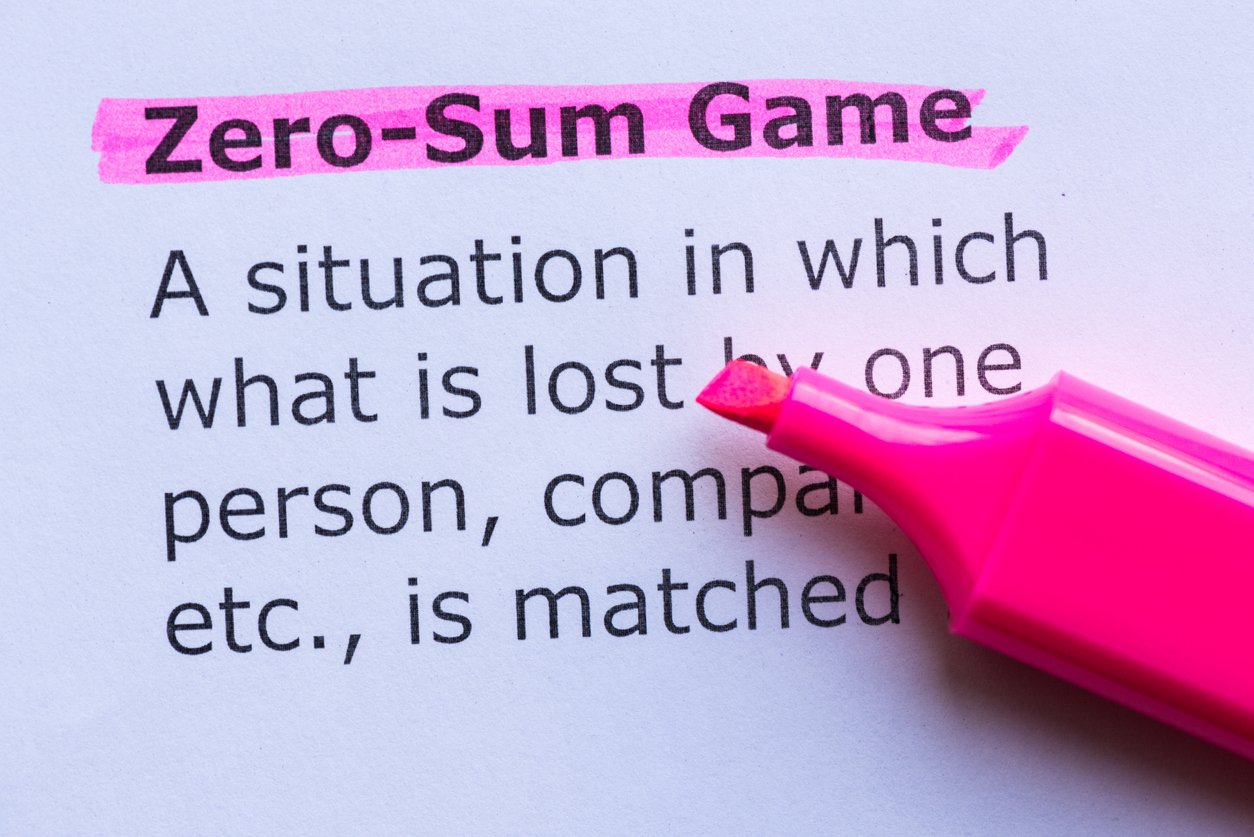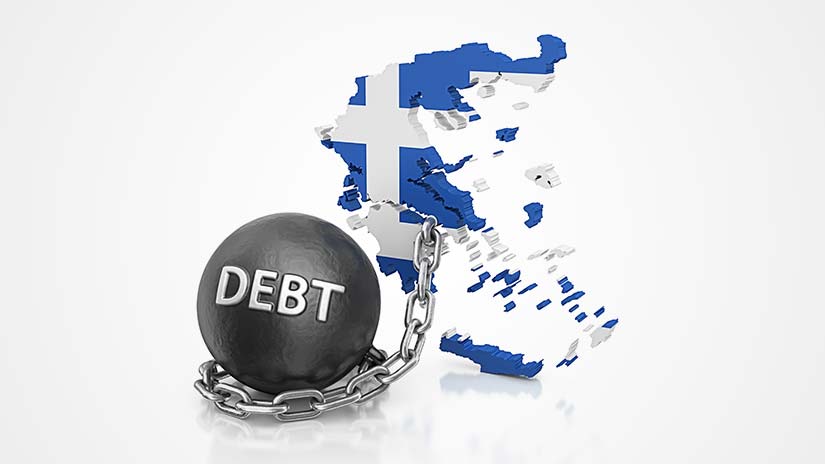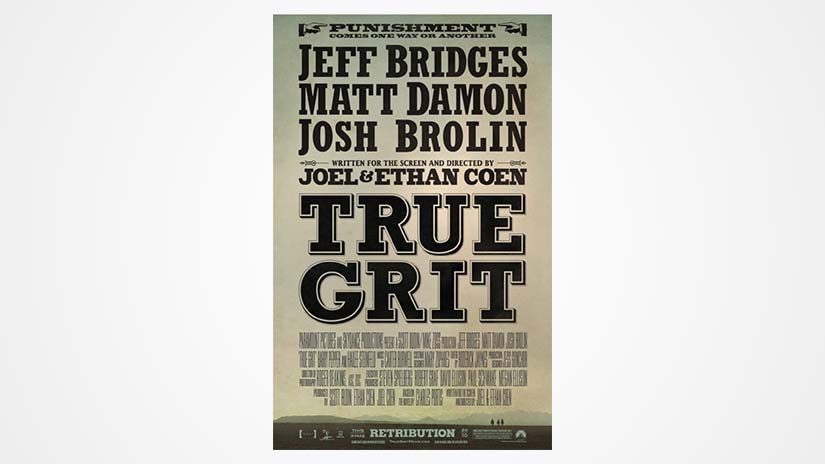
Always thank them.

By Leslie Mulligan
As the war in Ukraine expands and intensifies, we watch the sickening devastation and ask how can this be happening – has Vladimir Putin gone mad? The horror inflicted on innocent Ukrainians is so shocking, one might conclude that Putin has gone over the edge and lost touch with reality. Rational people wonder: why is he doing this, and can he be reasoned with to negotiate a diplomatic resolution to this nightmare?
Putin’s current position is clear – he presented the US and NATO his list of security demands in December 2021, including a guarantee that Ukraine never enters NATO and that NATO rolls back its military footprint in Eastern and Central Europe. At that time, his BATNA (best alternative to a negotiated agreement) was apparent - invading Ukraine (he has never truly ascribed to Ukraine’s sovereignty.) Negotiations had barely begun in January when Putin executed his BATNA. Ukraine and Russia were at war. And shortly after the invasion, Putin ratcheted up the rhetoric, threatening an even more terrifying BATNA – use of nuclear weaponry. The stakes are higher than ever for the West now, as Ukraine bears the brunt of this savagery.
his BATNA (best alternative to a negotiated agreement) was apparent - invading Ukraine (he has never truly ascribed to Ukraine’s sovereignty.) Negotiations had barely begun in January when Putin executed his BATNA. Ukraine and Russia were at war. And shortly after the invasion, Putin ratcheted up the rhetoric, threatening an even more terrifying BATNA – use of nuclear weaponry. The stakes are higher than ever for the West now, as Ukraine bears the brunt of this savagery.
Is Putin rational and should we negotiate with him at all?
Experts within the intelligence and national security community warn against viewing Putin as a madman. In early March, a veteran former CIA operative said of Putin, “He may have made a miscalculation, and many of his beliefs are wrong, but he is rational, consistent, and ruthless.” That ruthlessness is on full display as innocent Ukrainians suffer his brutality, resulting in a massive humanitarian crisis with more than 3 million refugees fleeing their country.
We know Putin’s position, but what are his interests – his underlying motivations. Skillful negotiators realize there is often more than one way to solve a party’s real concerns – why they want what it is they’re asking for – not just the position they put on the table. In negotiations, those concerns are called “Interests” and must be addressed for a sustainable resolution. In collaborative negotiations, parties address both sides’ Interests to create more value overall. Clearly, the situation in Ukraine does not invite collaboration – and yet we must still come to the table and craft a negotiation strategy that resolves this nightmare. Compromise, a less ideal strategy than collaboration, may not feel good but must be explored.
What are Putin’s Interests?
 If we focus just on President Putin, what are the Interests in play, underpinning his position? From his remarks on the world stage, Putin is clearly motivated by the paramount "goal of regaining the importance in the world the Soviet Union used to hold - and restoring Russian pride." Putin came of age as a young KGB operative during the Soviet era, when the USSR was the counterweight to the power of the West, namely the US. That is how he defines greatness - regaining the power of the former Soviet Union.
If we focus just on President Putin, what are the Interests in play, underpinning his position? From his remarks on the world stage, Putin is clearly motivated by the paramount "goal of regaining the importance in the world the Soviet Union used to hold - and restoring Russian pride." Putin came of age as a young KGB operative during the Soviet era, when the USSR was the counterweight to the power of the West, namely the US. That is how he defines greatness - regaining the power of the former Soviet Union.
After the Berlin Wall fell and the USSR dissolved, Putin mourned “the national humiliation of a powerful state simply imploding”, notably not the “human cost or material tribulations ”. To Putin, the decades since the collapse of the USSR have not been kind to Russia. Fiona Hill (a NSC advisor to President Trump and former National Intelligence officer on Russia to Presidents Bush and Obama) gave an interview to the New York Times earlier in March, noting that Putin has "this mentality that Russia is always under siege, its leaders are always under siege."
Upon becoming the President of Russia in 2000, Putin was the embodiment of that greatness and the link between modern times and the Russian czars and czarinas that first achieved Russian prominence and pride. Putin’s real Interests then appear to be safeguarding his legacy as the restorer of Russia to its glory - reconstitution of the grandeur of the Soviet Union. Carlos Lozada wrote eloquently recently in the Washington Post: “Russia’s glory is his goal, but Putin’s own power is always the convenient means.”
If this crystallizes Putin’s Interests, can they be effectively addressed via negotiations or are other means necessary (and already in play)? Notably, addressing Interests works when dealing with most rational negotiators. But is Putin rational or irrational?
Putin rational or irrational?
Irrational negotiators act against their own Interests
Irrational negotiators appear to act against their own interests in the face of good information. Is Putin acting against his own Interests? Reflecting on the siege mentality Fiona Hill noted, is it real or imagined, or a major miscalculation on Putin’s part? Peter Baker at The New York Times reported back in March of 2014 that German Chancellor Angela Merkel shared her insights on Putin with President Obama, “that after speaking with Mr. Putin she was not sure he was in touch with reality, people briefed on the call said. 'In another world,’ she said."
Both rational and irrational negotiators fall prey to miscalculations.
So, is Putin miscalculating because he is misinformed? Stephen Kotkin, the renowned scholar of Russian history and Fellow at the Hoover Institution, was interviewed recently by David Remnick for The New Yorker and stated that Putin “is not getting the full gamut of information. He’s getting what he wants to hear. In any case, he believes that he’s superior and smarter.” This is a potentially catastrophic problem with despots as evidenced by current events.
Putin addressed the Kremlin on the eve of the Ukrainian invasion with the rationale for what would soon befall Ukraine. One foreign policy analyst described it as a "resentful diatribe" that highlights his view of the deceit of the West in its approach to Russia. But the analyst underscores that “Putin was not being irrational.” In fact, it showcases how his “worldview is taking him into conflict”.
Kotnick continues, “war usually is a miscalculation. It’s based on assumptions that don’t pan out, things you believe to be true or want to be true.” That is playing out in real-time in Ukraine. Putin over-estimated his own military capability, assuming Kyiv would fall swiftly - a few days and a puppet regime could be installed. And he wildly under-estimated the fierceness and strength of the  Ukrainian resistance. And then there is the unity of the western democratic powers – President Zelensky inspires the West with his steely leadership. In Zelensky’s address to the U.S. Congress, he evoked the US’ history in Pearl Harbor and 9-11 to urge its increased involvement. Western powers have come together to inflict economic war on Russia, but also to buttress the Ukrainian forces with weapons and support – whether significantly more support is forthcoming remains to be seen, as the West has thus far rebuffed the idea of a no-fly zone over Ukraine. Regardless of Western maneuvering, Putin is discovering the danger of unverified assumptions; he has had to reach out to China to overcome Russia’s military preparedness issue - in hopes that China will provide material support. It is imperative to be crystal clear on what is known/unknown, and what is assumed, as you prepare for negotiations, let alone warfare.
Ukrainian resistance. And then there is the unity of the western democratic powers – President Zelensky inspires the West with his steely leadership. In Zelensky’s address to the U.S. Congress, he evoked the US’ history in Pearl Harbor and 9-11 to urge its increased involvement. Western powers have come together to inflict economic war on Russia, but also to buttress the Ukrainian forces with weapons and support – whether significantly more support is forthcoming remains to be seen, as the West has thus far rebuffed the idea of a no-fly zone over Ukraine. Regardless of Western maneuvering, Putin is discovering the danger of unverified assumptions; he has had to reach out to China to overcome Russia’s military preparedness issue - in hopes that China will provide material support. It is imperative to be crystal clear on what is known/unknown, and what is assumed, as you prepare for negotiations, let alone warfare.
Putin’s penchant - Zero Sum game negotiating
 The Insider described Putin’s view of negotiating with international partners: he sees “foreign policy as a zero-sum game — a gain for one side comes at the expense of its opponent”. The West perceives itself as more typically pursuing strategic, collaborative negotiations, where mutually beneficial gains can be achieved. Yet we must still negotiate with President Putin despite the opposing approaches. As the CIA operative noted, “he is behaving rationally within the confines of a fundamentally irrational set of beliefs.” At his core, he is acting true to his personal Interests and what he believes to be Russia’s over-arching Interests. In this situation, we should treat Putin as a rational negotiator and work to prove his assumptions wrong before he will come to the table with any true intent to negotiate in good faith.
The Insider described Putin’s view of negotiating with international partners: he sees “foreign policy as a zero-sum game — a gain for one side comes at the expense of its opponent”. The West perceives itself as more typically pursuing strategic, collaborative negotiations, where mutually beneficial gains can be achieved. Yet we must still negotiate with President Putin despite the opposing approaches. As the CIA operative noted, “he is behaving rationally within the confines of a fundamentally irrational set of beliefs.” At his core, he is acting true to his personal Interests and what he believes to be Russia’s over-arching Interests. In this situation, we should treat Putin as a rational negotiator and work to prove his assumptions wrong before he will come to the table with any true intent to negotiate in good faith.
Must we provide a bridge or an off-ramp to Putin?
What can seasoned diplomats do next in this tragic situation? Do we have to provide Putin a way to “save face”?
World leaders are wielding myriad tools of influence as they try to resolve this situation swiftly and peacefully. Power is on full display by Russia, the West is implementing crippling  sanctions as a financial lever, Ukraine is certainly trying to persuade the West to enter the fray more boldly, and negotiations are ongoing - both between Ukraine and Russia but also between President Zelensky and NATO countries. Other stakeholders are exerting influence too - as China and myriad global oil producers factor in, directly and indirectly. US President Biden and Chinese President Xi Jinping held an hour-long telephone call to get clear on the implications of China wading into this situation - China’s influence will certainly impact what happens next in Ukraine.
sanctions as a financial lever, Ukraine is certainly trying to persuade the West to enter the fray more boldly, and negotiations are ongoing - both between Ukraine and Russia but also between President Zelensky and NATO countries. Other stakeholders are exerting influence too - as China and myriad global oil producers factor in, directly and indirectly. US President Biden and Chinese President Xi Jinping held an hour-long telephone call to get clear on the implications of China wading into this situation - China’s influence will certainly impact what happens next in Ukraine.
Encouraging signs at the negotiation table have recently come from both Ukraine and Russia, but there are still some momentous hurdles to overcome. In Putin’s most recent televised appearance, his rhetoric ratcheted up again - he has tended to double down when he feels his position may be weakened. A peaceful end is not yet in sight. To prevent a tragedy like this in the future, some bridge to this elusive peace must be considered.
Stay tuned for future posts that address these dynamics in more depth: how will other players influence the outcome, the preservation of Western Interests, how public perceptions shape the narrative, and what other levers might be pulled at this historic negotiation table with profound implications.

By Marianne Eby
In a recent seminar, a client described a negotiation crisis he'd had: at a meeting he believed was going to be an information exchange with his wholesaler, he was ambushed: without warning, the other side brought a team of eight from his company, made a lowball offer, and then announced that they no longer needed our client's business. What to do?
Our client was less stunned than he might have been -- the same person had pulled the same stunt two years before. Why was our client still doing business with him? A surprise attack is for competitive, not collaborative negotiations, since it tends to sacrifice the relationship to the outcome. And indeed, our client had avoided contact with the bully after the last deal, believing he would be gone by the time the contract needed renegotiation. Ending the relationship was difficult, because the bully's company had become our client's sole source of distribution.
When you have to negotiate with a bully, here are five tips for preventing and defending against a surprise attack:
Our client's plan after our discussion was to circle back to other retailers and wholesalers and explore his options and strengthen his BATNA before returning to the bully. Stay tuned for an update!

By Marianne Eby
Never enter a serious negotiation without knowing your Best Alternative To A Negotiated Agreement, or BATNA: a plan that you are willing to execute if there is no agreement.
The value of your BATNA is not just that you'll know what to do if a negotiation falls through (your Plan B) -- it's that your BATNA gives you power while you are negotiating.
On one hand, a BATNA is just another piece of important information you prepare. It is one element of your "negotiating envelope" that you must define before engaging with the other party -- along with your Goal, your Most Desirable Outcome (MDO), and your Least Acceptable Agreement (LAA). Although negotiation is a fluid process and you will continually revise your parameters in response to the other party's, this negotiation envelope guides your concessions in Bargaining.
The BATNA differs from the other defining decisions because its execution stands outside the negotiating process—by definition, it’s what you do when negotiation is not working. So while other parameters help you steer the negotiations, it is your BATNA that makes you a stronger negotiator -- because you don't need the other party’s permission or involvement to execute it.
Recently the Chicago Teachers' Union (CTU) demonstrated the power of every union's BATNA: the ability to strike. Although recent decades have seen a decline in union bargaining power, teachers unions are increasingly vulnerable, and the union leader in Chicago lacked influence with the Mayor, Chicago's teachers were able to force 300,000 students out of the classroom, shut down the third largest school system in the country, and win some key compromises from the Mayor.
Under US law, a union's potential BATNA is always to strike. Yet, many a union’s strike BATNA doesn't always have the power that the CTU's did, because some organizations will counter with their own BATNA: the use of "scabs," or non-union workers who can take the place of the striking workers. The NFL, for example, prepared for its recent referee strike by preparing substitute officials to run its games.
Of course, the implementation of a BATNA isn't always preferable (Chicago students lost instructional time) and if it's not well-planned, it can backfire as a means to more power in your negotiation. The NFL's use of replacement referees certainly backfired, causing several weeks of outrage, greater esteem for the regular referees, and ultimately some damage to the NFL "brand."
The ideal way to use a BATNA is to let the other side know you have one. Though an executed BATNA can mark the end (at least temporarily) of the negotiating process, that doesn’t mean that a contemplated BATNA shouldn’t be an integral part of that process. Letting your counterparts know—in an advisory rather than threatening way—that you have other options is an important part of your negotiating stance.
Despite the word "Best" in BATNA, you can have more than one—in fact, you should have more than one, because the more you have, the greater your flexibility and power. BATNAs can vary from a move as simple as finding a new supplier of goods or services, to one as radical as dropping a project altogether. The better conceived and more numerous your BATNAs, the less likely you’ll need them. The other side will know you have viable alternatives, which will make them more willing to deal.
Here are the main things to remember as you develop your BATNA:

By Thomas Wood
Whatever the nature of our negotiations (commercial, legal, regulatory, internal, etc) we can learn from the ups and downs of some of the most prominent public negotiations. With the Euro in serious trouble and economies worldwide shaken, government negotiations over economic strategies are around the clock and very public. The US negotiations over federal budgets, taxes and spending are a prime example.
With several US significant tax and spending provisions set to kick in (or lapse) in December and January, official Washington will be furiously bargaining at year’s end. And the stakes couldn’t be higher: the fate of the US national economy, the credit rating of the U.S. government, and the confidence of the American people in their elected representatives’ ability to tackle big problems.
In last summer’s negotiations, President Obama and the Congress' House Speaker John Boehner came close to striking a “grand bargain” on long-term debt reduction. It combined restrictions on the growth of entitlement programs (which are trades dear to the Democrat party) with increased taxes on the wealthy (which is anathema to the Republican party). But at the last minute the deal fell apart. Examining elements of this failed negotiation through the prism of Best Negotiating Practices may well provide insight into what could happen at the end of this year, as well as provide guidance for our daily bargaining.
The 2011 budget talks were prompted by a deadline—namely, the need to raise the US government’s debt ceiling so it could borrow more money to pay its bills. Congressional Republicans used this deadline to try to force concessions: they refused to increase the government’s borrowing authority without obtaining agreement by the Administration to substantial budget cuts. While absolute deadlines can be helpful in focusing energy and avoiding unnecessary delay, skilled negotiators can also use arbitrary deadlines as tactic to gain advantage.
The Republicans took a position opposed to any tax increases. The President’s position was that he would not accept the level of cuts in entitlement programs sought by the Republicans without an increase in taxes on the wealthy. For both sides, the interest was to achieve debt reduction while maintaining the support of each party’s political base. Negotiators sought a solution—as good negotiators should—that served the two parties’ interests, even if it seemed to violate their positions (raising taxes by closing loopholes rather than raising rates, for example).
When the deal collapsed, Democrats charged that Boehner had lacked sufficient authority to bargain, and had been overruled by his Republican colleagues in the House. Negotiators should always have sufficient authority to strike a deal, but not absolute authority: carrying limited authority allows them to postpone or deflect unwelcome proposals. In the end, both sides decided that no deal was better than what they viewed as a bad one. They could both revert to the same, ready-made Best Alternative to a Negotiated Agreement (BATNA): elections, in which each side might achieve at the polling place what it couldn’t at the bargaining table.
While political negotiators in each country and all governments have special advantages and restrictions, everyone involved in negotiation can benefit from studying their successes and failures. It will be interesting to see if the US federal budget negotiators busy later this year are among those who have learned anything.

By Marianne Eby
Few negotiations are more complicated than the multi-party wrangling going on now in Europe over the Greek debt crisis: it involves not only the Greek government and its creditors, but the European Union and public creditors like the International Monetary Fund. There are even negotiations going on within these separate entities, such as between France and Germany over the proper EU response. But it’s still possible to see within this tangled process familiar issues the parties would be well-advised to address through Best Negotiating Practices.
When assessing a multi-party negotiation, you should break it down into its constituent parts; multi-party bargaining is actually a group of connected but still distinct one-on-one negotiations. In the case of Greece, the government is conducting one set of negotiations with its bondholders and a second with the European Union, its source of bailout money. The two are connected, since the EU is demanding certain outcomes from the first negotiation before discussing more emergency aid. But practiced negotiators can often exploit such multiplicity of parties, and therefore interests, to craft a creative solution.
While conditions often vary in the course of a negotiation, occasionally it’s the parties themselves that change. In a business negotiation, the change might come about as a result of a merger or acquisition. In political negotiation, the switch can be triggered by an election. Smart negotiators invest time and effort in preparation for their new counterparts by learning as much as possible about their motivations, tendencies and style. Greece held national elections in early May, and while the results were inconclusive, one of the leading contenders to form the next government is the leftist party Syriza. It’s made clear it will take a more aggressive approach to EU negotiations.
“Greece needs a leadership that can go abroad and not just say what foreign leaders are prepared to hear but say what the Greek people wants to be said,” declared Syriza leader Alexis Tsipras recently. “It has to draw red lines, to plan a strategy and to stand up for the rights of Greeks. Only a government of the left can do this.”
Meanwhile, negotiations between France and Germany about the right cure for Greece’s and Europe’s ills—fiscal austerity or economic stimulus—seemed to hit an impasse. But in his remarks following a five-hour bargaining session reported in today's L.A. Times, the EU president wisely aimed to avoid the impression of a deadlock. After describing the talks as “focused and frank,” Herman Van Rompuy explained, “Tonight's meeting was about putting pressure, focusing minds and clearing the air.” This well describes the information exchange that precedes actual bargaining, which he anticipated would begin in earnest at a meeting the following month.
As negotiators always should, the parties have devised Best Alternatives to a Negotiated Agreement (BATNA’s). In this case, everyone’s BATNA is a departure of Greece from the Eurozone common monetary system. This would reduce the obligation on the rest of Europe to save the Greek economy, while allowing Greece to pay off its debts with a national currency it alone controls. Even the creditor bankers might make out better from such an arrangement than they would in accepting too large a write-down on their Euro-denominated loans.
But the long-term ramifications of such an unprecedented event are impossible to predict with any certainty. So you should expect all parties to continue to try to avoid this dramatic step through more negotiation. And we should all take advantage of this very public display of bargaining to improve our own negotiating skills.

By Thomas Wood
Mattie has almost no power in this negotiation, but she leverages something much more potent – her skill as a negotiator – her true grit.

By Thomas Wood
Let’s magnify the various moves Bill and Jen made in their salary negotiation that my colleague explored in previous blogs Part I and Part II. They reached a deal, but was it to their mutual satisfaction? We’ll categorize the moves as Tactics, Blunders and Best Negotiating Practices (BNPs). Do you agree?
|
Tactic, Blunder or BNP?
|
Move
|
Response & Impact
|
|
Blunder
|
Bill relied on this part-time position and didn’t have a Plan B – other interviews or networking
|
Bill’s failure to continue to build his BATNAs (his Plan Bs) puts him at a disadvantage
|
|
BNP
|
Bill prepares an opening offer and support
|
He is ready when Jen asks
|
|
Tactic
|
Jen ignores Bill at first to make him feel unimportant
|
It works mildly, but Bill’s preparation keeps him confident
|
|
Blunder
|
Jill opens the conversation without any rapport building or excitement about Bill joining the organization
|
Jen misses the opportunity to build an alliance with Bill, which will make it more difficult for her to learn what matters to him. She also risks him deciding against the job.
|
|
BNP
|
Jen asks Bill what he wants
|
Hearing from Bill informs Jen up front if this conversation is worth her time. But it did come with the risk that Bill would anchor Jen by opening first.
|
|
BNP
|
Bill opens with his prepared opening offer of $127K.
|
Great opening offer – high, but justifiable, and therefore credible
|
|
Blunder
|
Jen says “Absolutely not” to Bill’s opening, which is the same as saying “No.”
|
Saying the word “No” or a similar negative response shuts down conversation
|
|
BNP
|
Jen opens with her opening offer of $78
|
Jen’s opening seems appropriate – she starts low but within a justifiable range
|
|
BNP
|
Bill asks “Why?”
|
Always a great probe, when said with sincere curiosity and not as an attack. Jen is so far from Bill’s preferred salary that he can only benefit from more information.
|
|
Blunder
|
Bill doesn’t wait for Jen’s answer. He starts defending his stature.
|
Jen is unfazed because Bill isn’t engaging her – he’s presenting to her. Bill is waiting too long to start asking questions – the best way to engage his counterpart.
|
|
BNP
|
Finally Bill realizes that he is not convincing Jen, and starts asking lots of engaging questions.
|
You can’t probe too much!
|
|
BNP
|
Bill next asks for Jen’s advice as to what he needs to succeed in this job.
|
Great open-ended question. Engaging the other side is critical. Jen’s inclination now is to help Bill, rather than to win against him.
|
|
BNP
|
Bill asks Jen to reconsider the salary given the information they have discussed about his background and fit for the position.
|
Bill needs Jen to move a lot, so his open request is a good strategy. He’s giving her a way to save face if she is convinced that his salary can go higher.
|
|
BNP
|
Jen makes a huge move from $73 to $103K.
|
Jen’s first move is big, but she saves face by having reconsidered the expertise required for the job and Bill’s fit for the position.
|
|
Blunder
|
Bill seems inclined to accept the offer.
|
Bill could have asked more questions about the new salary range, and further built the relationship. Jen probably had more to give. But Bill lacked confidence due to his non-existent BATNA (plan B).
|
|
Tactic
|
Bill asks about getting an alternative work schedule given the lower salary than what he had anticipated.
|
At least Bill asked for something to justify why he would move off his opening of $127K – the alternative work schedule. It was a “nibble,” but because he knew Jen could give it, there was little risk to the relationship in employing this tactic.
|

By Marianne Eby
Deflategate continues to enlighten us -- not just about American football, or alleged scandals, or even the science of air pressure in balls in cold weather -- but about what happens when parties can’t reach a negotiated solution to their dispute. Last week opened with an appeals court reinstating New England Patriots' quarterback, Tom Brady's 4-game suspension, and ended with a court filing by the Brady team. The many plays that have occurred and the ones yet to come demonstrate the perils of litigation, the power of having a Plan B or BATNA, and that there is still benefit to and time for a negotiated solution.
When my colleague at Watershed Associates, Leslie Mulligan, wrote about Deflategate in July and again in September 2015, she quite rightly predicted that we have not seen the last of the NFL v. Brady case. She exposed the various stakeholders and their potential interests – why they might want what they are demanding. She also talked about the parties’ Plan Bs, or BATNAs (best alternatives to a negotiated agreement) – what moves they might make if no agreement is possible.
What Leslie couldn't know then was how the 2015 NFL season or the appeal of a lower court decision would ultimately play out, and what would be the next moves by parties who so far had not found common ground on which to negotiate a resolution of their differences.
The parties in court are technically the National Football League (NFL) Management Council, and the National Football League Players’ Association (NFLPA). The parties who everyone talks about are NFL Commissioner Roger Goodell and the star quarterback Tom Brady. Brady’s football team, the New England Patriots, are involved as they certainly care about winning games (and the revenue) that could be impacted by a suspension of Brady for his alleged role in the scandal. Roger Goodell is under great pressure to keep the League’s owners satisfied with his leadership decisions and equal treatment among teams, so the other teams’ owners are major stakeholders. And of course the NFLPA needs to demonstrate that it will protect the rights of the players, like Brady.
These parties chose to execute their litigation BATNA to resolve this dispute rather than negotiate a solution. As a former litigator myself, I know well the perils of litigation. Negotiation can be win-win or win-lose, but litigation is almost always lose-lose, and it has played out exactly that way in Deflategate.
The parties’ BATNAs in and outside the courthouse have continued to unfold. Last week a panel of the U.S. Court of Appeals for the 2nd Circuit reinstated the 4-game suspension issued by NFL Commissioner Roger Goodell against the New England Patriots' star quarterback, Tom Brady. This is probably not the final play in what has been a drama filled game of questionable tactics.
Unlike litigation, negotiating a settlement of their dispute had the potential to put the solution within the parties’ control. They could have mutually determined how they would be perceived, their investment of resources (15+ months, lawyers fees, personal time and stress) and the ultimate outcome. Litigation, on the other hand, held the potential to declare a final winner and a loser, raising the stakes significantly. Sometimes implementing the BATNA of litigation is the only way to satisfy our interests, but it usually comes at great cost to both parties.
There are always winners and losers, but it’s the Interests that underlie the wins and losses that really matter.
With commentary from me on what really mattered throughout Deflategate, let’s review Brady's win-loss record on and off the field, and in and outside the courthouse, and what was really at issue in each stage of this game since January 2015.
Brady wins
Jan 18, 2015 - Tom Brady leads the Patriots to win 45-7 in the AFC Championship game.
►What matters? Brady is a star football player and key to the Patriots' win record. A defeat of this magnitude certainly doesn't come about from pure ball tampering, but it does leave others wanting pay-back.
Brady loses
Jan 23, 2015 – NFL announces investigation into allegedly deflated balls (or as it turned out, possibly one ball); Deflategate is born!
►What matters? NFL’s interest here is ostensibly the integrity of the game.
Brady wins
February 1, 2015 - Midway through the 4th quarter of the 2015 Super Bowl, the Patriots are down by 10 points, but Brady isn't resigned to lose. Brady leads the Patriots to victory as Super Bowl XLIX champions.
►What matters? Brady and the Patriots don’t need deflated balls to win.
Brady loses 3 consecutive moves
May 2015 – NFL issues harsh penalties. Brady gets a 4-game suspension to take place in the 2015 season for his alleged role in Deflategate. The NFL also imposes a $1,000,000 fine on the Patriots and takes away the team’s first and fourth round draft picks.
►What matters? The official interests seem to be that the NFL won’t cover up even alleged complicity by one of its superstars and that it doesn’t “play favorites” with the teams. But there is a behind the scenes interest as well – that Goodell is beholden to all teams’ Owners and they haven’t forgotten past cheating by the Patriots.
June & July 2015 - Arbitration of an internal NFL appeal: NFL Commissioner Goodell, acting as the arbitrator, denies Brady’s appeal and upholds the suspension.
►What matters? The NFL’s power to conduct the investigation as it saw fit and issue penalties as it deems appropriate are paramount to its leverage with the players’ association.
Minutes later? Beating Brady and the NFLPA to the courthouse door, the NFL files a lawsuit in US District Court in New York to affirm the arbitrator’s decision.
►What matters? NFL files in NY to avoid ending up in a Minnesota federal court that has been more friendly to players.
Brady wins 3 consecutive moves
 Brady is unstoppable throughout the 2015 NFL season.
Brady is unstoppable throughout the 2015 NFL season.
Sept 3, 2015 – Federal District Court's Judge Berman vacates Goodell's decision and rules in favor of Brady. The Judge urged the parties to settle. Berman finds legal deficiencies that were fatal to the NFL’s suspension (inadequate notice to Brady of the possible punishment, lack of access to investigative files, and not letting Brady examine the lead investigator).
►What matters? Goodell’s conduct (rulings and decision) at the hearing are deemed unfair and in breach of the collective bargaining agreement.
The NFL didn't try to stop Brady from playing in the 2015 season, and the Patriots ultimately secured the AFC East Division title.
Around the same time, the academics finally weigh in. MIT professor John Leonard releases his study of the data – the math and the football – and he concludes that “no deflation occurred and the Patriots are innocent. It never happened.” It’s all over YouTube: MIT Professor Debunks Deflategate. And Harvard Business School has around a thousand students grapple with a case study about Deflategate, developed by professors Marco Iansiti and David Sarnoff. Iansiti comments:
“The data are the data. A lot of the proceedings are now frankly more about the power relationships between different stakeholders in the whole environment, and less about what actually happened with the bloody footballs.”
►What matters? Brady and the Patriots have multiple moral victories that no court can erase. It’s clear that Deflategate is all about the power of the organizations involved, and litigation, as is often true, is only a vehicle to increase or avoid losing that power.
Brady loses
December 22, 2015, the NFL files an appeal to the US Court of Appeals for the 2nd Circuit. And in January Brady and the Patriots lose the AFC Championship to the eventual 2016 Super Bowl champions, the Denver Broncos.
►What matters? The NFL’s power to enforce its decisions is paramount to its leverage with the NFLPA, regardless that the facts favoring Brady are mounting. On appeal, the law matters (not the facts), and winning on the field is as unpredictable as court.
Brady wins
March 2016 – Brady renegotiates his salary to include a $28M signing bonus for his $60M multi-year contract.
►What matters? Brady reduces his year-1 salary to $1M and thereby ensures that he protects a large portion of his earnings with a signing bonus the NFL can’t touch in the event that the 4-game suspension is reinstated on appeal, after the questioning at the hearing on March 3 didn’t bode well.
Goodell hedges on whether the NFL will enforce Brady’s suspension if the NFL is successful on appeal.
“That is not an individual player issue,” Goodell said then. “This is about the rights we negotiated in our collective bargaining agreement. We think they are very clear. We think they are important to the league going forward and we disagree with the district judge’s decision.”
►What matters? The NFL’s real interest is in protecting its rights under collective bargaining agreements; the facts aside and well beyond the implications for Tom Brady.
Brady loses
Apr 25, 2016 – US Court of Appeals for the 2nd Circuit in New York issues decision overriding Judge Berman and reinstating the Brady’s suspension, with one dissenting opinion.
►What matters? Judge Berman’s improper application of the law in overturning Goodell acting as arbitrator of his own decision. The NFL’s power in collective bargaining is re-established.
Brady wins
Brady holds the #1 spot for sales of NFL players merchandise for the 2015-16 season.
►What matters? Since his initial suspension, Brady surpassed both Quarterback Peyton Manning’s merchandise sales even though Manning led the Denver Broncos to be Super Bowl champs in 2016, and the merchandise sales for Russell Wilson, quarterback for the Seattle Seahawks, who held the #1 spot for the previous 2 years. The players get 2/3 of the money from the merchandise sales. One could conclude from this that Deflategate improved Brady’s reputation rather than hurt it.
What are the parties' next moves?
Who wins or loses next? More importantly, what really matters?
The NFL wants happy fans, the assurance of power in its collective bargaining agreements with the players’ union, and increased revenue. The NFL has lost a great deal of respect to protect those interests. Tom Brady is by all measures a star football player, but he wants to go down in history as an honest football legend, not to lose income, and as a winner on and off the field.
Will the parties rely again on the strength of their BATNAs, or will they finally see that their interests can be addressed in a negotiated agreement – that they can move from lose-lose to win-win?
Here are the 3 possible next plays in Deflategate:
 has a great chance of success.
has a great chance of success.The NFL has won the legal issues at this juncture, and may want to avoid any risk of a further appeal, given the strong dissent by Judge Katzmann, who found the Commissioner breached his authority.
Brady doesn’t have much more to gain even if he wins the next court decision, given that his popularity actually increased during Deflategate, the Patriots re-signed him and helped him avoid most of the financial hit a suspension will impose, and there are many experts who question not just the NFL’s actions during Deflategate, but the evidence itself, leaving Brady’s integrity largely intact.
Of course Brady and the Patriots want to win football games, and the team’s chances of reaching the playoffs in the upcoming season are increased if Brady plays those first 4 games. But that outcome is attainable in a settlement, and does not need a court decision. We don’t know what are the parties’ next moves, but we can be pretty sure everyone wants to see more of Tom Brady playing football, especially when he may not have many seasons left.

By Leslie Mulligan
Famed quarterback Tom Brady will take the field this Thursday in the NFL's season opener when the New England Patriots play the Pittsburgh Steelers. Brady will no doubt demonstrate his prowess in the game, but unlike other seasons, he'll step on the field with one victory already in hand. It turns out that in the pre-season battle of the BATNAs, Brady had the winning strategy.
In July Commissioner Goodell denied Brady's appeal of the NFL"s (US National Football League's) May 2015 4-game suspension for alleged cheating -- involvement in or covering up deflated game balls -- and upheld his own decision. Brady and the NFL Players Association (NFLPA) went to court to fight this battle, as intense competitors will do. Ultimately, Judge Richard Berman ruled in Brady’s and the NFLPA’s favor, vacating the 4-game suspension that the NFL had levied.
When I wrote about the situation in July, I was keeping an eye on the stakeholders, the parties' interests, and the available BATNAs. Now we know that victory in the battle of the BATNAs led us to the finish.
BATNAs are your Best Alternatives to a Negotiated Agreement, or plan B. The other side doesn't have to agree with your BATNA, because it's the plan you will execute if negotiations don't produce a desirable result.
Knowing the strength of your BATNA relative to your counterpart, and being willing to execute it, is essential as you enter any negotiation, as the NFL regrettably realized this past week. We can all learn from the NFL's missteps.
Every successful negotiator knows that you are more powerful at the negotiation table if you have a strong BATNA, preferably more than one. But remember - your BATNA is your back-up plan, your Plan B. In fact, your Plan A should be to reach a mutually beneficial agreement through dialogue, without having to execute BATNAs. This is paramount, especially if you will need to work together in the future.
Clearly the NFL and the NFLPA have an ongoing relationship and must work together going forward. Executing BATNAs can be risky because you don't know the fall out, unlike the greater certainty that comes with a negotiated agreement. Executing BATNAs can also damage relationships, as we have seen play out in this situation. To that end, Judge Berman urged both sides to negotiate a solution rather than do battle in court.
But each side evidently thought that its BATNA was the stronger BATNA.
As you enter a negotiation, one critical step is to assess the relative strengths of each side’s BATNA. This assessment is done in the Exchange stage of negotiations, while you are measuring your opponent’s position, understanding their interests, and assessing their trustworthiness and credibility. Depending on the strength of your BATNA and your assessment of the other side, opening offers are made. In Deflategate, both sides had strong opening positions: Brady refused to accept any ruling that included missing a football game because of cheating, and the NFL seemed to require Brady to bear some level of responsibility by accepting the NFL’s Deflategate investigation led by Ted Wells.
These seemed like aggressive opening offers at the time, but both sides must have felt that they had strong BATNAs. If you are confident in your Plan B, you can afford to be very assertive with your opening position. As no negotiated settlement was reached, each side apparently believed that they had the superior BATNA. Clearly, Brady and the NFLPA made the right assessment.
Although the NFL under-estimated the strength of Brady’s BATNA, the NFL did do one thing well. The NFL immediately sought to improve its BATNA by filing a pre-emptive lawsuit against Brady in a New York federal court, rather than the players-friendly venue of Minnesota, where recent trials had been held that went the player’s way.
A good negotiator constantly works to improve short and long-term BATNA’s, before and during negotiations, and certainly when agreement can't be reached. Roger Goodell and the NFL clearly had that on their minds, as they filed the NY lawsuit to reaffirm the NFL's ruling on the same day the ruling was issued – July 28th.
For more on ways to leverage your BATNAs, check out an earlier Watershed blog, the Negotiator’s Keys to a Powerful BATNA.
We have likely not seen the last of the NFL vs Brady case, as the NFL recently stated that it will appeal Judge Berman's decision. But this move should not stop Tom Brady from joining the New England Patriots on the field as the NFL opens its season. Let’s hope that both sides reassess their negotiation strategies to find a way to address their interests and appease their stakeholders. While the battle of the BATNAs has a victor, nothing's certain about who will win the season opener. Let the games begin!

By Leslie Mulligan
Will Tom Brady or Roger Goodell come out the winner in the NFL's DeflateGate? Who has the skills and strategies to win the next round? Get your tickets because this negotiation is a game everybody is watching.
NFL camps are opening this week all over the US, and football-hungry fans are getting excited about watching their teams – and favorite players – on the gridiron again. One huge problem hanging over the start of the season: what will happen to much-beloved Tom Brady, locked in battle with NFL commissioner, Roger Goodell and the "ownership powers that be," over DeflateGate? Did Tom Brady break the rules with football deflation in the AFC championship game, and if so (or even if he just “covered up” potential evidence), what punishment fits this crime?
The NFL handed down a 4-game suspension back in May 2015 and the players' union, NFLPA, appealed in June. Just this week, Commissioner Goodell upheld his decision: the 4-game suspension stands. But the questions may linger - what is fair in this situation, and what will be accepted by those football-hungry fans, especially when Tom Brady was just announced as the #1 seller of NFL merchandising for Q1 this year, from the NFLPA’s Top 50 Player Sales list.
How can Roger Goodell and NFL ownership keep fans happy, while retaining control over league activities? The balance of power is intriguing. – can a win-win be reached between the NFL and Tom Brady’s camp, especially now that Goodell has solidified his position with his latest ruling? Here are the issues to watch.
Stakeholders are Issue #1 to Watch
An essential concept in negotiations is to manage your stakeholders, in part by recognizing and hopefully meeting their interests: Goodell has a number of stakeholders, and their interests are not necessarily aligned. The NFL (and NFL Owners) makes close to $10B in revenue a year, with an aim of reaching $25B by 2027 – the top professional sports league in the world.
And they pay Goodell handsomely; in 2012, Goodell’s salary was $44M (this is the last published salary, as after 2012, the NFL relinquished its tax-exempt status and closed ranks on disclosing salaries). Goodell clearly wants to keep the owners happy! In fact, at least two of these very powerful owners lobbied hard to uphold the 4 game suspension – Jim Irsay (Indianapolis Colts- the team that lost to Brady in the infamous game) and Steve Bisciotti (Baltimore Ravens). So it is no surprise that Goodell doubled-down on his decision this week.
Tom Brady’s last contract was $57 million over 5 years – orders of magnitude lower than NFL revenue and less than Goodell’s own salary, but in the court of public opinion, Brady’s power is significant. The NFL assuredly wants to keep all of those jersey-buying fans happy too, as their zeal fills the owners’ cash registers. It seemed as if the majority of fans wanted Brady’s suspension lightened if not lifted – that will play out on the airwaves in the coming days, as we see how fans react to Goodell’s decision.
Interests are Issue #2 to Watch
Both sides of this conflict have myriad interests in play. It is essential to understand and prioritize your interests, and determine what is driving the other side, in order to attain a win-win outcome in any negotiation. Goodell clearly wants to keep the NFL owners and the fans happy, but he has a self-serving interest too: he wants to preserve his reputation and legacy as an outstanding Commissioner. His reputation has taken repeated hits lately with various league scandals. As he ponders next steps, surely he wants to avoid second-guessing in the media, questioning his leadership. How his decision to uphold the suspension preserves, or sullies, his reputation remains to be seen.
Tom Brady is also very interested in self-preservation – he values his earnings potential both as an NFL player but as a champion endorser too! If he is viewed as a cheater, his short-term income from promotions, commercials and other sponsorships may dry up. In 2013, Brady's endorsement income was $7M, not too far below his NFL annual salary.
But probably more important to Tom Brady than his marketing potential is his legacy as one of the best, if not the best, quarterback to have played the game. He went on record in January to proclaim he was not a cheater. The new information that he had his cell phone destroyed after the investigation began raises the stakes for him. He wants to be in the pantheon of immortal NFL players, and with 4 championships under his belt already, he was on his way. It is no surprise that Brady wanted the entire 4-game suspension wiped away – with the recognition that he did not cheat. So his interest is clear, but how to best achieve it?
BATNAs are Issue #3 to Watch
Tom Brady and the NFLPA have one major lever – their BATNA! In this case, their Best Alternative To A Negotiated Agreement, or Plan B, is to take the NFL to court. And they have been clear that they are willing to do just that: they are willing to execute their BATNA and go to court. BATNAs are most powerful when the other side believes you have a strong Plan B (or more than one alternative, even) and are willing to execute it. Back in June during the initial appeal, Brady’s defense attorney publicly stated that they have a strong case, and many in legal circles agree.
The NFL has a lot on the line; some recent NFL investigations did not go so smoothly (remember the Ray Rice case), but Roger Goodell has shown that he is also willing to execute his BATNA. The last thing that Roger Goodell and the NFL probably want is a protracted legal proceeding, including all that might come out in the Discovery phase of litigation, but that seems to be the path we are on. Just a few days ago, Forbes published an article that suggests Brady and team will prevail in court. If that's an accurate assessment, Goodell's priority must be keeping his stakeholders happy at this stage.
End game?
One hope is that cooler heads will soon prevail, as an underlying, common Interest in play for both parties should be a speedy resolution. Brady assuredly wants to get on the field – he only loses $2M if he misses all 4 games, but he would snap his 13-year record of season opening starts. And Goodell would like to open the NFL season with happy fans (and happy owners). But for the moment, we are at the stage of litigation threats. It will be fascinating to see how this unfolds.
We will know soon enough if they are able to pull back from their BATNAs and negotiate some form of a win-win solution. Interests and stakeholders are now well understood; opening and counter-offers have been made and BATNAs revealed. Let’s hope they focus on Best Negotiating Practices rather than legal tactics in the near term, and close the books on this rapidly, so that the start of the American football season can kick off happily for all parties - especially the fans!
Please provide us with some details and we will be in touch soon!